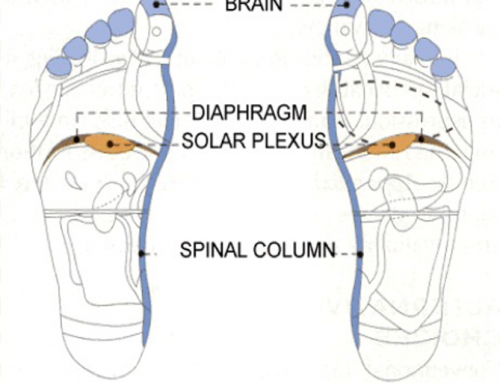Low levels of vitamins can trigger various skin problems. A lack of vitamin A can cause scaly, dry skin while that of vitamin D can result in flaky, irritated skin. Deficiency of vitamin E can cause sun damaged skin and of vitamin C scaly rough skin. The skin also acts up if there’s a shortage of B vitamins: deficiency of vitamin B2 results in a skin rash; of vitamin B3, dermatitis and scaly sores; of vitamin B6, itchy rashes and flaking skin; of vitamin B7, scaly dermatitis and dry skin; and of vitamin B12, white patches.
Vitamin Deficiencies That Show On Your Skin
- Vitamin A
- Vitamin D
- Vitamin E
- Vitamin C
- Vitamin B6
- Biotin (Vitamin B7)
Great skin can make you look like a million bucks. But the skin can also be a barometer of your health. This important organ functions as a barrier which protects the body from a variety of dangers – the sun’s rays, germs, toxins, and cold. Skin also has a part to play in regulating body temperature and works as a storehouse for fat, water, and metabolic products. And let’s not forget, you wouldn’t be able to feel anything, whether it be the warmth of a fireplace on a cold day or the pain of a pinprick, without skin.
A good skin care routine goes a long way in keeping your skin healthy. But it’s also important to nourish your skin from the inside out. Not having a healthy, balanced diet can damage your skin. And one key deficiency that can show up on your face and skin is that of vitamins. Here’s what you should know about vitamin deficiencies and their impact on your skin.
1. Vitamin A
Vitamin A is a fat soluble vitamin that helps in the formation and maintenance of healthy skin as well as teeth, skeletal tissue, mucous membranes, and soft tissue. The recommended daily allowance (RDA) of Vitamin A is 900 mcg/day for adult men and 700 mcg/day for adult women. If you don’t get enough of this vitamin, it can cause scaly, dry skin, and dry lips.
How to get it: Vitamin A comes from animal sources such as eggs, meat, fortified milk, cheese, cream, liver, kidney, cod, and halibut fish oil. And if you’re looking for a source that’s low in saturated fat and cholesterol, it can also be formed by your body from carotenoids, which are colored pigments with antioxidant properties found in fruits and vegetables. Try spinach, collards, kale, and other leafy green vegetables. Or stock up on beta-carotene rich fruits and vegetables like apricots, peaches, squash, carrots, or sweet potato.
2. Vitamin D
You might already know that low levels of vitamin D can affect your bone health and cause osteoporosis. But did you know that vitamin D deficiency could be a contributory factor in psoriasis? In fact, it has been found that the topical application of vitamin D preparations on the patches of flaky, irritated skin that characterize this skin disorder can improve the condition. The RDA of vitamin D for adults is 15 mcg/day. Dietary vitamin D comes in two forms – cholecalciferol (vitamin D3) and ergocalciferol (vitamin D2).
How to get it: Your skin can make vitamin D when it’s exposed to sunlight. But overexposure to the sun’s ray can also cause your skin to age and lead to skin cancer, so it might be a good idea to look at dietary sources of vitamin D too. Egg yolks, liver, and salt water fish provide this vitamin. Foods like milk and cereals are often fortified with it.
3. Vitamin E
Vitamin E, a fat soluble vitamin, is an important antioxidant which helps fight harmful free radicals. Free radicals are naturally formed in the body when we convert food into energy. Air pollution, sunlight, and smoking also expose us to free radicals. So vitamin E plays an important part in protecting the skin from sun damage which can cause accelerated aging and wrinkling of your skin.
However, do keep in mind that experts feel that vitamin E alone may not provide sufficient protection to your skin. You may also need vitamin C to effectively increase the photoprotection of skin through the diet. The RDA of vitamin E for adults is 15 mg
How to get it: You can get vitamin E from sunflower oil, safflower oil, and wheat germ oil as well as nuts like almonds, hazelnuts, and peanuts. Green vegetable like broccoli and spinach can also give you some vitamin E.
4. Vitamin C
Vitamin C is important for the health of your skin as it has antioxidant properties. It also plays a critical part in the synthesis of collagen, the protein that gives structure and support to your skin. Adult men need about 90 mg of this vitamin per day while adult women require 75 mg per day. Studies have found that having higher amounts of vitamin C provide protection from sun damage and that a deficiency can lead to scaly, dry, and rough skin.
Vitamin C deficiency can also cause scurvy, a condition where your body is not able to adequately replace collagen. This leads to symptoms like pain in your muscles and joints, swelling and bleeding of your gums, and red dots on your skin.
How to get it: Many fruits and vegetables are rich sources of vitamin C. Include fruits like grapefruits, oranges, mangoes, and papayas and vegetables like cauliflowers, tomatoes, cabbages, spinach, and red and green peppers in your diet.
5. Riboflavin (Vitamin B2)
Riboflavin is involved in the production of energy from food and plays a part in keeping your skin and vision healthy. The RDA of this vitamin is 1.3 mg for men and 1.1 mg for women. A deficiency of this vitamin can cause redness and cracks in the corner of your mouth and your tongue as well as a skin rash. You may also experience inflamed eyelids, hair loss, and reddening of your cornea.
How to get it: Milk, cottage cheese, yogurt, wholegrain cereals, leafy green vegetables, egg whites, meat, kidney, and liver can all help you get in your daily quota.
6. Niacin (Vitamin B3)
Niacin is vital as it’s required for the body to convert fat, protein, and carbohydrates into energy. It also helps keeps your skin healthy and supports the digestive and nervous systems. It is recommended that men get 16 mg of niacin per day while women should aim for 14 mg in a day.
Niacin deficiency causes a condition known as pellagra which is characterized mainly by the symptoms of dermatitis, dementia, and diarrhea. This condition leads to scaly sores on your skin and can cause your tongue to swell up. It’s important to increase levels of niacin if you have pellagra – the condition can be fatal if left untreated.
How to get it: Fish, meats, poultry, eggs, milk, wholegrain cereals, mushrooms, and nuts contain this vitamin.
7. Vitamin B6
Vitamin B6 is another nutrient that’s important for the health of your skin. The RDA of vitamin B6 for adults is 1.3 mg, though you might need slightly higher amounts after the age of 51. If you don’t get enough of this vitamin you can experience symptoms like rashes that itch, flaking skin on your lips, and cracks in the corner of your mouth.
How to get it: Fish, eggs, and poultry are rich in vitamin B6 as are starchy vegetables like potatoes.
8. Biotin (Vitamin B7)
Biotin plays an important role in the metabolism of energy, glycogen synthesis, fat synthesis, and amino acid metabolism. Experts suggest that 30 mcg of biotin a day is adequate for adults.
It’s rare to be deficient in this vitamin since it’s widely found in foods. However, certain habits like the consumption of raw egg whites, which contain a protein that inhibits the absorption of biotin, may lead to a deficiency. Symptoms of a deficiency can include pale skin, scaly dermatitis, and dry skin as well as hair loss, nausea, loss of appetite, weakness, and muscle pain.
How to get it: Cauliflowers, peanuts, egg yolks, chicken, and mushrooms are good sources of biotin.
9. Cyanocobalamin (Vitamin B12)
Vitamin B12 helps keep your blood and nerve cells healthy and also plays a role in the making of your genetic material or DNA. The RDA of vitamin B12 for adults is 2.4 mcg.
A deficiency can cause symptoms like fatigue, vision loss, loss of appetite, and shortness of breath. People who lack vitamin B12 can also develop pernicious anemia, a condition where the body is unable to make a sufficient quantity of healthy red blood cells. This condition, which occurs because the body is unable to absorb vitamin B12 from foods, is associated with vitiligo, a pigmentation disorder which causes white patches to develop on your skin. Studies show that a combination of sun exposure and oral supplementation with folic acid and vitamin B12 can be helpful in treating vitiligo.
How to get it: Meat, liver, cheese, milk, and eggs are good sources of this vitamin. But do keep in mind that if you have pernicious anemia, you might require shots or pills of vitamin B 12 to treat it.




